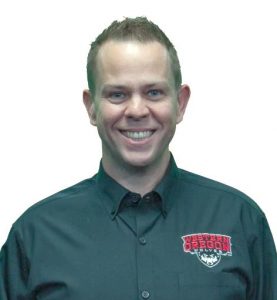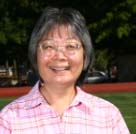Research & Resource Center with Deaf* Communities
Home » RRCD Home » RCDHHA » RCDHHA Program Information
MenuRRCD
The Rehabilitation Counseling with Deaf and Hard of Hearing Adults (RCDHHA) Program
Description and Program Goal
The Rehabilitation Counseling with Deaf and Hard-of-Hearing Adults (RCDHHA) program is a 9-credit, month-long summer academic certificate program run on the campus of Western Oregon University. The goal of the program is to improve the employment and independent living status of deaf and hard-of-hearing people by increasing the number of rehabilitation professionals and their community partners nationwide who have the necessary knowledge and communication skills to serve this population. Participants take American Sign Language, an orientation to deafness, and vocational rehabilitation service provision. The Rehabilitation Services Administration (RSA) under the US Department of Education provides funding to defray the expense of participating in the program for participants in exchange for employment in a qualifying setting.
Who should attend this four week, intensive deafness orientation session?
- Rehabilitation personnel
- Mental health professionals
- Employment specialists
- Independent living trainers
- Social workers
- Coordinators of services for students with disabilities
- Transition and career development specialists
- Other professionals in social service occupations
Course of study
Participants in the RCDHHA program enroll in three academic courses and have considerable opportunity for interaction with deaf and hard-of-hearing people. The program offers 9 credits (6 graduate/3 undergraduate or 9 undergraduate) and 95 contact hours.
- ASL 101 (102, 103 or 201) American Sign Language (3 undergraduate credits only). Expressive and receptive exposure and practice in American Sign Language, the preferred communication mode used by American deaf adults, and a focus on the cultural values and beliefs of this community. Students are assigned to sections according to skill level after consultation with instructors.
- TPD 484/584 Introduction to Deaf and Hard-of-Hearing Studies (3 undergraduate or graduate credits). Introduction to the cultural, audiological, educational and vocational issues of people who are hard of hearing, deaf, or deaf-blind.
- RC 490/590 Professional Issues: Rehabilitation Counseling with Deaf Clients (3 undergraduate or graduate credits). Psychological, social and vocational implications of deafness. Extensive review of the rehabilitation service system’s response to the unique needs of people who are deaf or hard of hearing.
Lecture series: Assistive Communication Options
These lectures are by qualified practitioners and provide students with an opportunity to build a basis of knowledge regarding speech communication and technological communication options. Special emphasis is placed on the needs of those people who may be hard of hearing, oral-deaf, late deafened, or cochlear implant users.
Accessibility
All campus programs, services and facilities are physically and communicatively accessible. Interpreters and an FM assistive listening system are provided for all deaf and hard-of-hearing program participants. Upon acceptance, information is provided regarding the process for requesting accommodations.
Program faculty and contributing staff
Denise Thew-Hackett, Ph.D., MSCI, CRC, RCDHHA Director
Kara Gournaris, Instructor, American Sign Language
Kim Poage, Instructor, Rehabilitation Counseling
Brent Redpath, Instructor, American Sign Language
Lyra Behnke, Instructor, American Sign Language
More information
This program is supported by Rehabilitation Services Administration, Office of Special Education and Rehabilitative Services, U.S. Department of Education, in cooperation with Regional Resource Center on Deafness and the College of Education at Western Oregon University, Monmouth, OR 97361
Western Oregon University is committed to providing equal opportunity in its recruitment, admissions, educational programs, activities and employment without discrimination on the basis of age, color, handicap, national origin, race, marital status, religion, sex, or sexual orientation. Inquiries may be directed to: Affirmative Action Officer, 345 N. Monmouth Ave., Monmouth, OR 97361.
Contact
 Chad A. Ludwig, MSW, ADAC, OHCI, DI, Director
Research and Resource Center with Deaf* communities
ludwigc@wou.edu | 503-468-5724
Chad A. Ludwig, MSW, ADAC, OHCI, DI, Director
Research and Resource Center with Deaf* communities
ludwigc@wou.edu | 503-468-5724
 Konnie Sayers, Administrative Assistant
Research and Resource Center with Deaf* communities
sayersk@wou.edu | 503-838-8444
Konnie Sayers, Administrative Assistant
Research and Resource Center with Deaf* communities
sayersk@wou.edu | 503-838-8444
